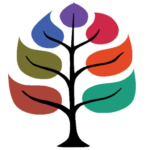Empathetic Joy for Today’s Times
News headlines of late do actually contain good news, but the balance is certainly heavily tilted towards one devastating or at least discouraging event after another. We tend to be drawn in by these reports, and can easily be under the delusion that they represent an accurate account of what goes on in the world. In truth, they represent a small portion of the daily events, activities and interactions between individuals and groups throughout the world. This is not to minimize the harm that does take place or avoid in any way dealing with it. But to succumb to the delusion that this is a full picture of humanity today or to be drawn in by their seductive messages can lead many of us to a place that fosters both thoughts and emotions that are neither healthy nor beneficial. For every account in the news of a business scandal, how many businesses are involved in truly working to make the world a better place, serve their customers with honesty and conduct their business dealings with virtue? For every account of child abuse, how many parents and adults every day show children generous kindness and heartfelt support for their well-being and growth? To be able see and remember and even rejoice in the goodness found in our world is an essential part of living mindfully. As William James said so astutely, “Our view of the world is truly shaped by what we decide to hear.” Or as others have said, what we attend to becomes your reality.
We all experience thoughts and mental and emotional states like an ongoing flow of water in a river throughout our day. Much if not most of these arise unintentionally, and occur out of habit and conditioning and in response to our environment, seen clearly or with delusion. As John Bruna writes in his book “The Wisdom of a Meaningful Life: The Essence of Mindfulness,” “the good news is that we can change our conditioning. We can develop and strengthen the mental and emotional states we find beneficial. There are specific mental states that are extremely healthy and are direct antidotes to harmful ones. They include: equanimity, loving kindness, compassion and empathetic joy. In Buddhism these healthy states are referred to as the four immeasurable attitudes.”
Choosing, with wisdom and intention, to cultivate these attitudes supports us in watering healthy thoughts and emotions, leaving much less room for harmful or unhealthy ones. As in your garden, when the lettuce and carrots are thriving, the weeds are not able to take hold as easily. When we tend to the vegetables, fertilizing and watering them, we have less need to fuss with the weeds.
Empathetic joy is the attitude of rejoicing in the virtuous activities and rewards of others. When we are able to first mindfully notice the kindnesses going on around us, the care of parents for their children, the virtuous actions of businesses, the wonderful successes of groups creating positive changes in our community, country or internationally, we take the first step. When we rejoice with appreciation, whether quiet and inward or by offering gratitude or sharing the good news, we water the seeds of empathetic joy. Practicing this daily, noting the good, the kind, the virtuous and generous, we create the habit of seeing more clearly and rejoicing more often. When others do well, and do good, we all benefit. The more love, kindness, compassion and joy there is in others, the better off we all are. The emphasis here is virtuous, not just hollow success or worldly activities. Empathetic joy is the antidote to jealousy and envy, but also serves to counter the hopelessness, the gloom, the weight of seeing the world only through skewed headlines. Discernment is key, as empathetic joy can be misconstrued as advice to put on rose colored glasses. The illusory facsimile of empathetic joy is the Pollyanna syndrome, a superficial kind of positive thinking that is not discerning. Empathetic joy helps us recognize and rejoice in those things that are truly beneficial, and the practice of empathetic joy starts with seeing the good in our world.
“As a single footstep will not make a path on the earth, so a single thought will not make a pathway in the mind. To make a deep physical path, we walk again and again. To make a deep mental path, we must think over and over the kind of thoughts we wish to dominate our lives.” Henry David Thoreau







